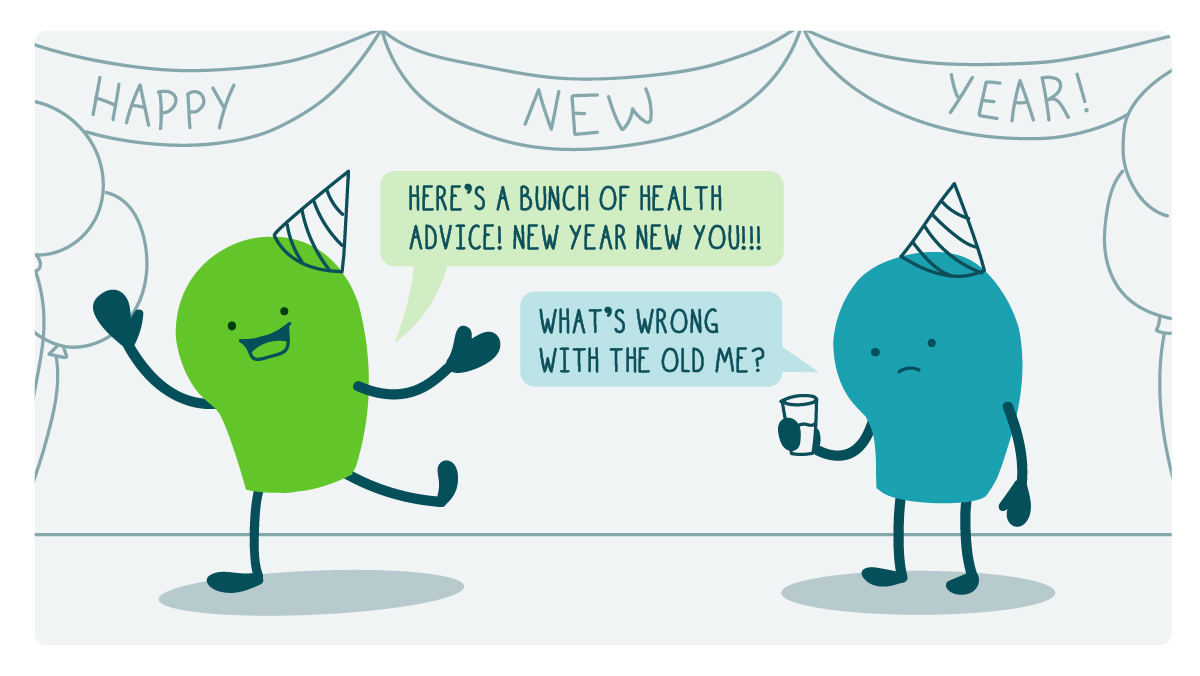
It’s that time of year again: the post-holiday period when we’re inundated with information about how to stick with our New Year’s resolutions and follow “healthy” routines.
While this guidance is usually well-intentioned, it’s not always helpful — and sometimes it’s downright harmful. You don’t have to look far to find health advice that’s unrealistic or perpetuates stigma and stereotypes (not to mention all the information that’s just plain untrue!).
As health communicators, it’s up to us to counteract this January jumble of unhelpful health tips by providing our audiences with clear, empathetic, and actionable information — just like we do all year long! With that in mind, below are a few steps to take when you’re writing about health behaviors in the new year.
Help people set realistic expectations. New Year’s resolutions tend to be big and bold — but our health advice shouldn’t be. We’ve said it before and we’ll say it again: Provide manageable action steps and clearly state that even small changes make a difference. So if you’re writing an article for people who aren’t physically active but want to be, offer a manageable suggestion, like: “Try taking a 10-minute walk a few times this week.” That’s a much more realistic goal than, say, a daily hourlong gym session. And that means people are more likely to stick with it! (You know, self-efficacy and whatnot.)
Avoid phrases with built-in value judgment. We’re talking terms like “clean eating” and “guilt-free.” These words are inherently judgy, and using them can induce shame and stress. If you’re not following a “clean eating” routine, are the foods you’re eating dirty? Absolutely not. That’s why it’s best to stick with solid, shame-free advice, like: “Try to eat a variety of fruits and vegetables.”
Even “fun” framing that tends to pop up in January can be problematic — just think how many times you’ve seen some version of the headline “New Year, New You!” While it’s snappy and could motivate some people (most likely in the short term), doesn’t it kind of imply that there was something wrong with the old you? Food for thought, dear readers.
Watch your framing of “failure” to meet goals. We all have off days — and busy days and sick days and lots of other days when we can’t check off our health goals. And guess what? That’s fine! Healthy habits and routines are just what their names imply — they’re patterns of behavior, not prescriptive requirements. So think twice before you call a missed workout or an unhealthy meal a “setback” or a “slipup” (are they really?) — and tell your audiences to go easy on themselves: “If you didn’t get all your walks in this week, it’s no big deal! Just try to get back on track — remember, even a few minutes of physical activity can have real health benefits.”
The bottom line: Health messages are everywhere right about now. Cut through the noise with clear, manageable action steps — and steer clear of terms and framing that could perpetuate shame or stigma.
Browse recent posts